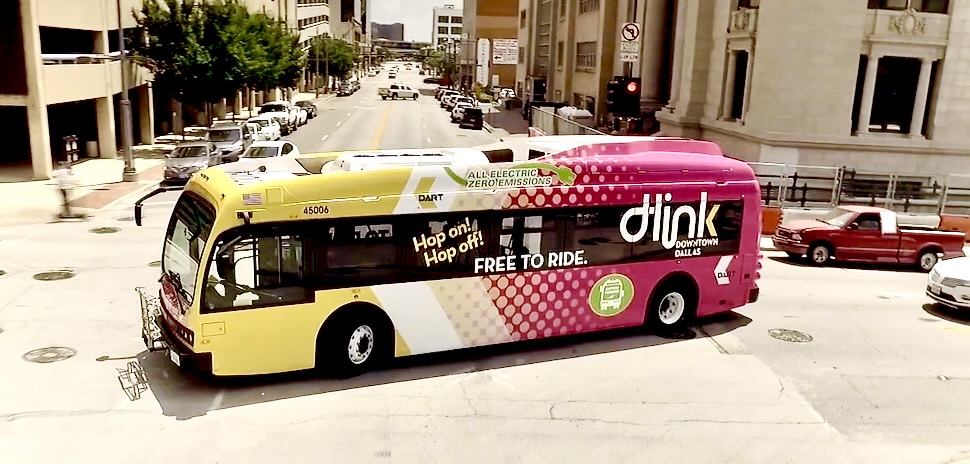Published November 9, 2021; Updated November 16, 2021
Update: President Joe Biden signed the $1.2 trillion Infrastructure Investment and Jobs Act yesterday, November 15th, in a White House ceremony. The bill is now a law—which means billions of dollars in federal funding will be heading to Texas over the next five years, as outlined in our story below.
The $1.2 trillion bipartisan infrastructure bill that Congress passed on Friday, November 5, and that President Biden signed into law on November 15, will invest $550 billion in new infrastructure spending. A lot of that money is coming to Texas—and all that green could make a real difference to our environment.
According to Environment Texas—a grassroots nonprofit organization—the historic bill will improve Texas’ transportation and power infrastructure and lead to cleaner water for decades to come.
The Infrastructure Investment and Jobs Act passed the U.S. Senate by a vote of 69-30 last summer. After months of wrangling, the bill was passed by the House of Representatives Friday night, 228-206.
The bill’s key environmental provisions for Texas
In a release, Environment Texas noted an array of provisions in the bill that will create positive impacts for the Texas environment. They include:
$2.9 billion for removing lead pipes and other water infrastructure in Texas over five years. Texas still has an estimated 270,000 lead service lines. Our state had 6000 sewage overflows in 2019, leading the American Society of Civil Engineers to give Texas’ wastewater infrastructure a grade of D.
$408 million to build electric vehicle charging stations in Texas over five years, with the opportunity to apply for $2.5 billion in grant funding. Texas needs an estimated 12,400 level 2 charging stations and 1,720 level 3 “fast charging” stations by 2030 to meet projected demand.
Electric grid and power infrastructure improvements. The bill includes $73 billion for these improvements nationwide. In Texas, last February’s record winter whiteout caused power blackouts across the state, exposing a critical need for grid improvements. Transmission constraints are also leading to curtailments of wind and solar energy in our state. Both issues could benefit from Texas’ share of the $73 billion.
New passenger and freight rail projects. The bill provides $66 billion for these projects nationwide. In Texas, Texas Central is working on building a bullet train line between Dallas and Houston. And Amtrak has proposed new rail service connecting Dallas to Fort Worth, Austin, San Antonio and Houston. These projects could potentially benefit from Texas’ share of the $66 billion.
$3.3 billion for public transit in Texas. The bill provides $39 billion for public transit nationwide (the largest such investment in history). According to the White House, “based on formula funding alone, Texas would expect to receive $3.3 billion over five years.” Austin’s Project Connect, Houston’s MetroNext, and other transit projects in Texas could benefit from the funding.
Environmental remediation. The bill provides $21 billion for this nationwide—and Texas could sure use its share. According to Environment Texas, our state has 55 superfund sites, 32 abandoned mines and 783,000 unplugged oil and gas wells.
Zero and low emission buses. The bill provides $7.5 billion for this nationwide. Environment Texas says at least 13 school districts in Texas have expressed interest in purchasing electric buses. Meanwhile, nine Texas transit agencies in Texas have already, or plan to, purchase electric buses.
The bill’s benefits for Texas aren’t only environmental
In addition to the environmental benefits above, the infrastructure bill will bring a lot more spending to Texas.
Airports in Texas will receive around $1.2 billion for infrastructure development over five years, according to the White House fact sheet.
Texas will also receive $53 million over five years to protect against wildfires and $42 million to protect against cyberattacks. Texans will also benefit from the bill’s historic $3.5 billion national investment in weatherization which will reduce energy costs for families.
Texas will also receive at least $100 million to help provide broadband coverage across the state, including providing access to over 1 million Texans who currently lack it.
Finally, roads—the first thing many people think about when they hear “infrastructure.” Based on formula funding alone, Texas would expect to receive $26.9 billion for federal-aid highway apportioned programs and $537 million for bridge replacement and repairs under the act over five years.
Altogether, this infrastructure funding in Texas creates a lot for many companies to do—including AECOM, the infrastructure consulting giant that recently announced its HQ move to Dallas.

AECOM CEO Troy Rudd [Image: AECOM]
Dallas infrastructure giant AECOM applauds the bill’s passage
AECOM is one of the world’s largest infrastructure consulting firms, and as Dallas Innovates reported in August, it’s moving its headquarters from Los Angeles to Dallas.
AECOM’s CEO, Troy Rudd, says the bill will help support critically needed innovation and sustainable solutions projects.
“We applaud the passage of the Infrastructure Bill,” Rudd said in a statement. “The law supports the needed investment in infrastructure to boost America’s economic future addressing many of the critical needs of our communities. Significantly, this legislation includes provisions to speed project delivery and makes billions of dollars available for innovation and the sustainable solutions required to achieve our communities’ social and environmental goals.”
![]()
Get on the list.
Dallas Innovates, every day.
Sign up to keep your eye on what’s new and next in Dallas-Fort Worth, every day.




























